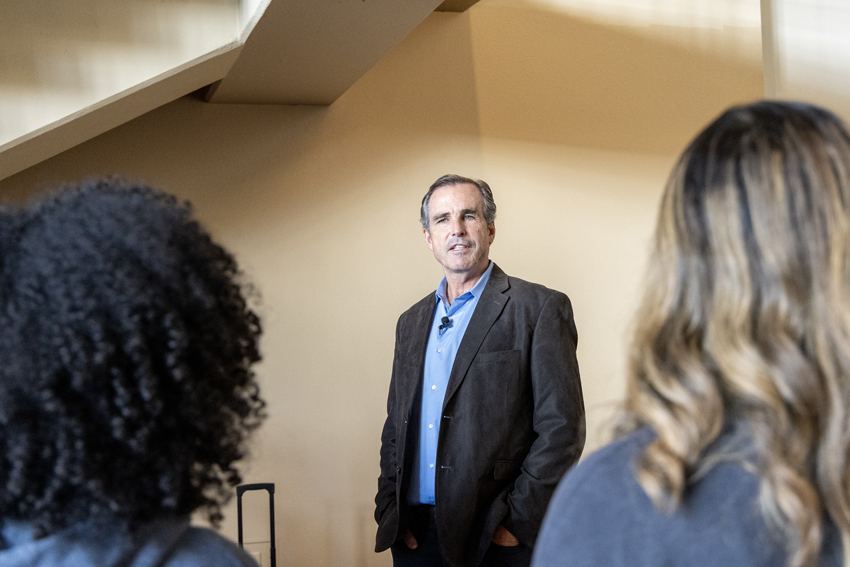The grinding sound of a table saw penetrates the atmosphere as sawdust engulfs the air. Everywhere the eye can see, students bend over tools and lumber, each transfixed on their work. Another day of woodshop begins.
Though many public schools ruled out woodshop as an educational course, the campus administration continues to expand its program.
“What a lot of public schools don’t realize is that some students are not cut out for college and need another way to prepare themselves for a career,” Randy Hurley, woodshop instructor, said. “Whether a student is college bound or not, woodshop teaches them vocational skills that they can use for the rest of their lives.”
The shop features a complete facility, with tools and supplies courtesy of generous donations from members of Peoples Church. In 1995, Hurley started the Craftsmen, a group of men from various churches interested in woodworking. The Craftsmen sponsored a large sum of the donations made.
“Before the church donated all the tools, I taught a night class for woodshop,” Hurley said. “I saw a growing need in the school for a woodshop class, so I started one. Now we have a complete facility all because of caring men and a teacher who saw a need.”
Hurley opens the shop during 0 period at 7 A.M. With only thirteen students, the small class size allows Hurley to better instruct individual students.
Keegan Shea, ’07, a two-year woodshop student, has been involved in woodworking for most of his life.
“Woodshop helps me to improve on skills I already have,” Shea said. “I try more complex projects because I know that if I can’t figure it out, Mr. Hurley will be able to help me.”
Shea’s current project is a pine computer cabinet for his mom. Although the project has taken him most of the semester to complete, it has been a learning experience.
“It’s been a much harder job than something I would usually take on,” Shea said. “I feel like I’ve learned a lot from it and that I have something to be proud of now that its done.”
According to Hurley, the most important skill taught in woodshop is self-confidence. Through the completion of difficult projects, students find that they are capable of doing things they once considered impossible. The skills they learn in woodshop can be used at any age.
“Students not only learn how to create a project from an idea, but they also learn how to follow both written and verbal instructions,” Hurley said. “These kinds of skills extend well beyond woodworking.”
The students also have access to a substantial library of project plans provided by Hurley. These plans cover anything from a chessboard to a book case.






